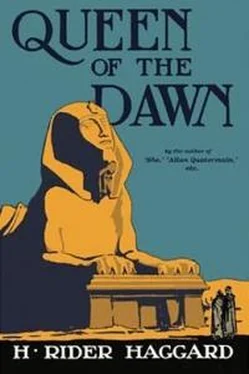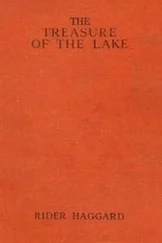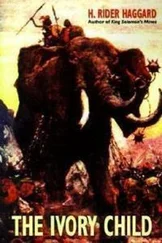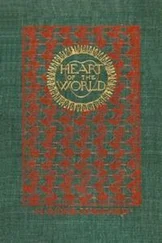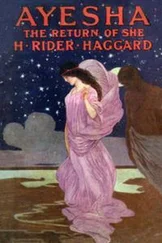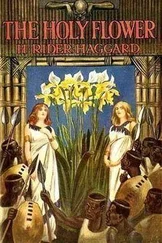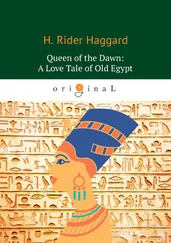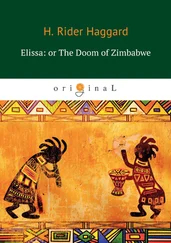"Where am I to go," asked the man, "I who am accursed?"
"To the home of all who fail—to hell," replied the officer, making a sign to his servants.
So they threw him out, and to hell or elsewhere he went very shortly. For that knife of his which Ru had cast after him with so good an aim was poisoned. Moreover, it had struck him beneath the shoulder and pierced his lung.
The officer went into the private chamber where sat King Apepi with some of his counsellors and his young son, the Prince Khian, the heir apparent to the throne. This Apepi was a big, fleshy man still in middle age, with the hooked nose of the Shepherds and black, beady eyes, one who was violent in his temper, revengeful and fierce–natured like all his people, yet very anxious–minded, a fearer of evil.
Very different from him was his son Khian, born of an Egyptian mother with royal blood in her veins, whom Apepi had married for reasons of policy. More—he had loved her in his fashion, and when she died in giving birth to her only child, Khian, had taken no other queen in her place, though of those who were not queens he had many about him. And now this child Khian had grown up to manhood. He was gentle–natured and soft–eyed, showing but little trace of the Shepherd blood, strong and handsome in body and quick in mind, one, too, who thought and studied, a soldier and a hunter, yet a lover of peace, by nature a ruler of men who desired to heal the wounds of Egypt and make her great.
Before these appeared the old Vizier Anath, and told his tale, reading what had been written down from the lips of the wounded man.
Apepi listened earnestly.
"Do you know, Vizier, who this mad girl is who has a fancy for climbing the Great Pyramid?" he asked at length.
"No, your Majesty, though perhaps I might hazard a guess," answered the Vizier in a doubtful voice.
"Then I will tell you, Vizier. She is no other than the only child of Kheperra, the Pharaoh of the South, who fell in the battle years ago. I am sure of it. It is known that such a child was born, for as you may remember, with the help of certain bribed Theban nobles, we tried to capture her and her mother, the Queen Rima the daughter of the King of Babylon. It would seem that her gods fought for her, since both of them escaped, and of those who went to take them only one was left alive. The rest, he swore, were all killed by a black giant who guarded them. Now there was such a giant for he fought at the side of Kheperra and bore his body out of the battle. More, he was seen upon a trading boat going down the Nile, and with him were two women and a child, doubtless disguised. By craft these three slipped through the hands of my officers at Memphis, who afterwards were degraded for their negligence, and it was reported that they had made their way to Babylon. Yet our spies tell us nothing of their coming to Babylon, which is strange if Queen Rima and her daughter, who is called Princess of Egypt, reached the Court of Ditanah with whom now and again we have been at war for many years. Therefore, either they are dead or they are hiding in Egypt."
"It would seem that this is so, Pharaoh," said the Vizier, and the other councillors nodded assent.
"Of late," went on Apepi, "a wind of rumour has sprung up which blows from the Cataracts to the sea, and whispers in the ears of men in every city and village on the Nile. This rumour says that the Queen of Egypt lives and ere long will appear to take her throne. It says, moreover, that she shelters among that strange Brotherhood of learned folk who have their home in the tombs of the old pyramids near Memphis and who are called the Order of the Dawn. It was to find out the truth of this matter that, somewhat against my counsel, you, Vizier Anath, sent certain bold fellows under promise of great reward to spy upon this Order which has no traitors, and to get sight of this wondrous maiden who can climb the pyramids and who, rumour says, is none other than the Princess of Egypt herself, though for aught I know she may be but a juggler."
"Or a spirit," suggested the Vizier, "since it seems impossible that a woman can perform such feats, and as to this matter there is a legend."
"Or even a spirit, though for my part I put little faith in spirits. Well, the men go; they creep into the Holy Land, as this place is called; they see the climber descending a pyramid; though I gave no such order, they seize her, which shows that she is flesh and blood; she calls aloud, a black giant—mark! again a black giant—rushes roaring to her rescue. He slays three of these men as though they were but children and hurls the man's own knife after the fourth, wounding him sorely, so that the maiden escapes and the Order of the Dawn is put upon its guard. Now I say that this maiden is no other than Nefra, Princess of Egypt, still guarded by that Ethiopian who bore her father's body from the battlefield."
When the murmur of assent had died away, Apepi continued:
"I say also that this business is very dangerous. Let us look it in the face. What are we Shepherds? We are a race that generations ago entered Egypt and took possession of its richest lands, driving the king back to Thebes and usurping the throne of the North. This I still hold, and the South also in a fashion, for we have corrupted its chief nobles and its high priests, binding them with chains of gold. Yet we are in peril, having been much weakened by ceaseless wars with Babylon; also, many of our people have intermarried with Egyptians, as indeed I did myself, so that the Shepherds are becoming stained to the colour of the dwellers on the Nile. Now these Egyptians are a stubborn and a subtle folk, also they are loyal to their old traditions and to the blood of the kings that ruled them for thousands of years. If one day they should learn certainly that a queen of that blood lives, it well may be that they will rise like the Nile in flood and sweep us into nothingness. Therefore I say that this queen must be destroyed and with her the Brotherhood that is called the Order of the Dawn."
In the silence that followed the Prince Khian rose from the chair in which he was seated below the throne, and making obeisance, spoke for the first time, saying:
"O King my father, hear me. As is known to you I study many things that have to do with the traditions and the mysteries of ancient Egypt, and amongst others from certain instructed men and from old writings I have learned much of this Order of the Dawn. It is an old order and its members are peaceful folk who fight with the spirit and not with the sword, a very powerful order, moreover, for although none know them, it has adherents by the thousand throughout Egypt, perhaps even in this Court, and, it is reported, in far lands as well, especially in Babylonia. Further, it is headed by a mighty prophet, an ancient man named Roy, if indeed he is a man; one who holds commune with the gods, and like all those over whom he rules, is protected by the gods. Lastly, by treaty made with our forefathers, the first of the Shepherd kings, and renewed by every one of them, even by yourself, my Father, this Holy Ground of graves where this order dwells in the shadow of the pyramids, is sacred and inviolate. Under pain of a dreadful curse, which curse it would seem has fallen swiftly upon those four who, somewhat against your counsel, and certainly against mine, broke the pact and entered this land, and there, not satisfied with spying, tried to do violence to a certain lady or spirit. Yet under oath and custom it may not be entered, nor may any harm be worked to the dwellers in the tombs. Therefore, Pharaoh my father, I pray you think no more of bringing destruction on this order and on a maiden whom you believe to be the daughter of Kheperra, since if you attempt it I am sure that you will bring destruction upon yourself and upon many of those who serve you."
Читать дальше
Конец ознакомительного отрывка
Купить книгу
